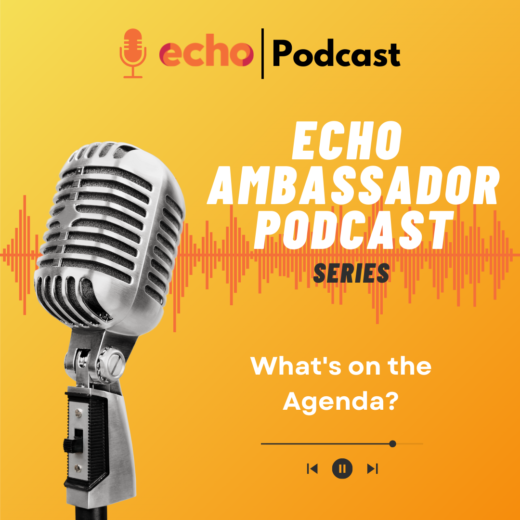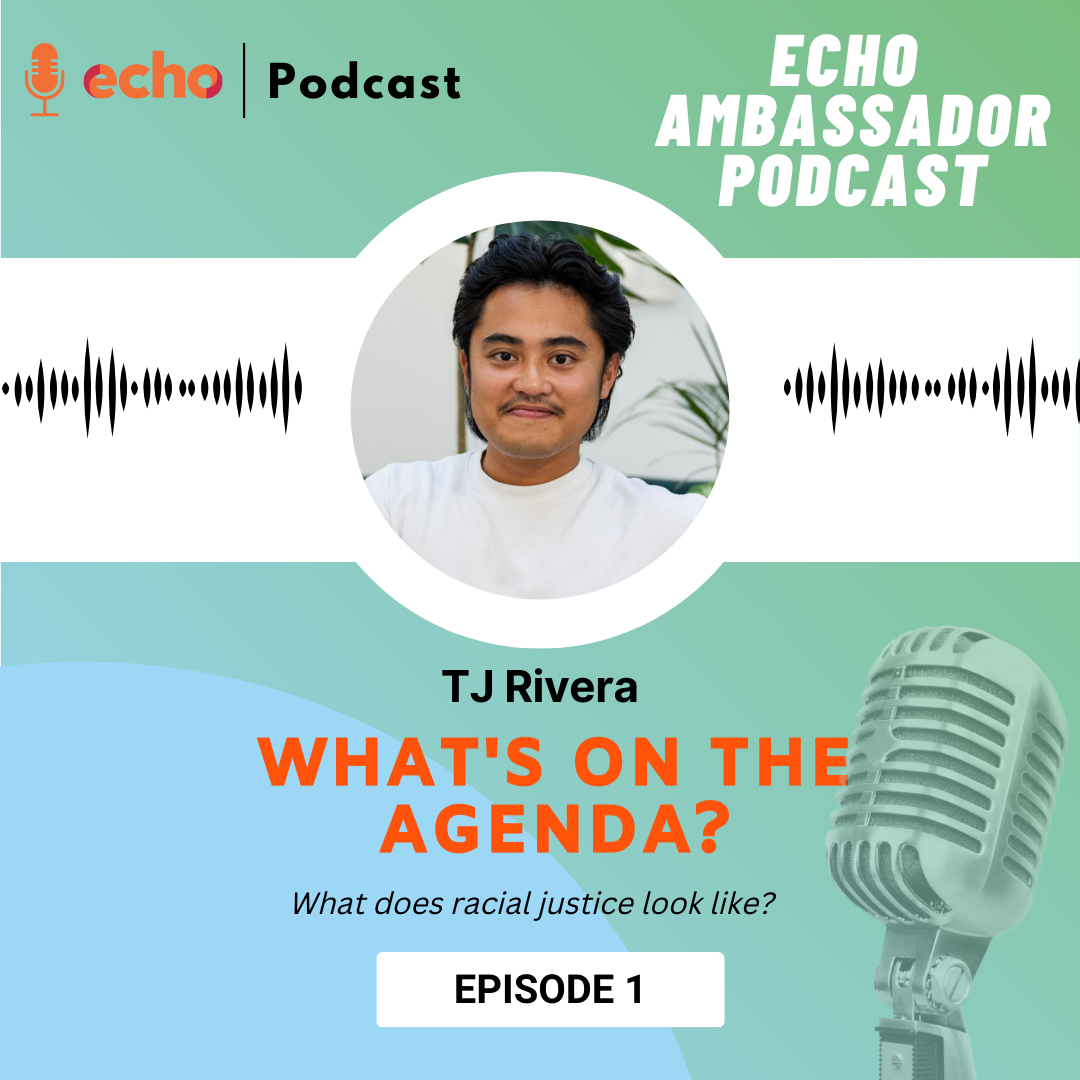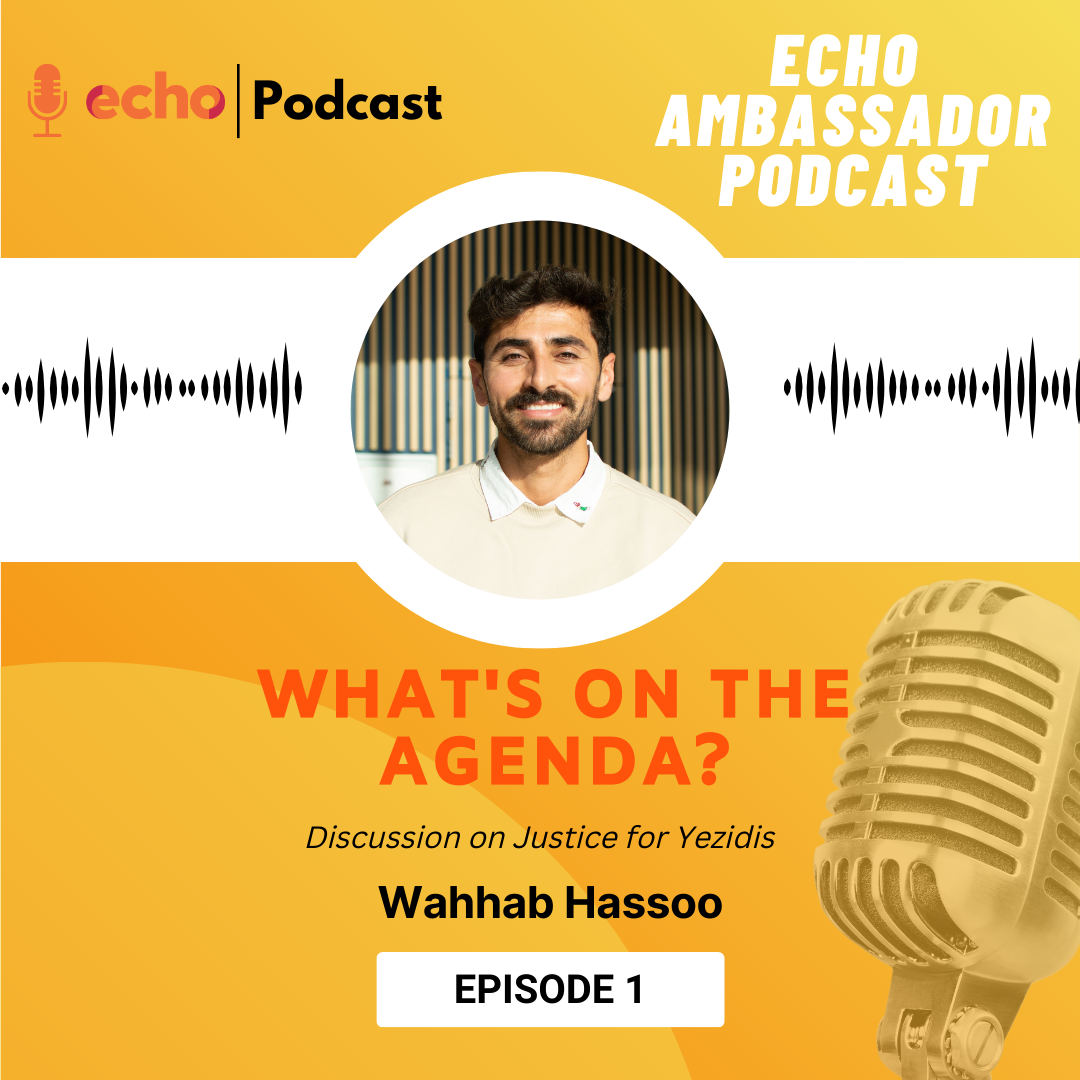Podcast series: What’s on the agenda
In this series, we engage with our ECHO Ambassadors to discuss various topics.
Meet our ECHO Ambassadors, a community of (upcoming) young professionals and organizers who want to contribute to a more just and inclusive society. A community that has been shaped through the work and philosophy of ECHO, Expertise Center for Diversity Policy, and has felt encouraged by the social debate to put social justice issues on the agenda. In this podcast series ECHO Ambassadors discuss issues they feel are important to discuss in the current social debate.
Tapping into their own lived experiences and community work, ECHO Ambassadors offer a fresh perspective on mainstream narratives. Want to know more? Check out the ECHO Ambassador Podcast: What’s on the agenda?


Season 2
This season, we’re placing the ECHO Ambassadors front and center—a powerful community of emerging young professionals and dedicated organizers committed to forging a more just and inclusive society. Grounded in the mission of ECHO, the Expertise Center for Diversity Policy, our ambassadors are inspired by the current social landscape to confront and elevate essential social justice issues. In this podcast series, our ambassadors dive into the topics that matter most to them, fostering meaningful discussions that resonate with today’s conversations. Drawing from their own lived experiences and community involvement, they challenge conventional narratives and provide fresh insights. We’ll also engage with questions from experts within the ECHO community to explore current developments in the social debate. Ready to discover the pressing issues that deserve our attention? Tune in for the ECHO Ambassador Podcast: What’s on the Agenda?
Episode 4: Strategies for transformation
In this episode, Mary Tupan, executive director of ECHO, puts the question of transformation on the agenda. What strategies can we engage with to achieve systemic change? And to what extent do these strategies evolve or shift when you navigate different contexts? ECHO Ambassadors Anima Jhagroe-Ruissen and Khaled Tamimy respond to these questions based on their experience as ECHO Ambassadors and ECHO professionals.
Episode 3: Who should write your story?
In this episode, Kathleen Ferrier, chair of the Dutch UNESCO commission, puts the question of representation in story telling on the agenda. Who should write the history of our times and who should write your personal story? And to what extent does race, gender or other aspects related to identity matter in telling these particular stories? ECHO Ambassadors Pravesha Ramsundersingh and Gnimdou Assih respond to these questions with different perspectives shaped by their specific experiences of living both outside and inside of the Netherlands.
Episode 2: What does meaningful participation of students mean in social justice work?
In this episode, Naomi van Stapele, lector Inclusive Education at The Hague University of Applied Sciences, puts student participation on the agenda. How can institutions move beyond tokenism and facilitate actual agency for students in education? ECHO Ambassadors Ariya Dashti and Anas Kjidaâ respond to these questions with their own reflections and explore challenges and opportunities in engaging students in policy and decision-making processes.
Episode 1: What does racial justice look like?
In this episode, Dr. Saran Stewart, Associate Professor and Director of Academic Affairs at University of Connecticut, puts racial justice on the agenda. How do we deal with race, when we are increasingly dealing with interracial and racial ambiguity in today’s society? What does racial justice look like for the new generation and how does that relate to previous generations? ECHO Ambassador TJ Rivera responds to these questions based on his personal lived experiences and professional aspirations related to designing queer spaces.
Season 1
Episode 5: Women’s rights in Iran, the reality of non-European students and the impact of technology on learning abilities
In this episode, Niusha Froozesh puts women’s rights in Iran on the agenda. What does the struggle of Iranian women look like and how can people within and outside of Iran and the Iranian diaspora engage with this struggle? In addition, Amna Chedhli puts the reality of non-European students on the agenda. What are the challenges they face that are often overlooked and how does this impact their study performance and sense of belonging? Finally, Sliem el Ela puts the impact of technology on learning abilities on the agenda. How does technology affect our ability to stay focused and retain information and what does this mean for the personal and professional development of future generations?
Episode 4: Inclusive learning spaces
Khalid El Haji and Dian Wijnstein put inclusive learning spaces on the agenda. What does this mean and how can this be achieved in a context that deals with both local and international diversity?
Khalid and Dian share their ideas and strategies based on the D&I work they engage with at their universities. From student-centered approaches to institutional responsibilities, explore different perspectives on inclusive learning spaces in this ECHO Ambassador Podcast.
Episode 3: Inclusive education
Andromeda Anyan and Rida Hamdi put inclusive education on the agenda. What is currently lacking in education and what are effective interventions to make education and the educational system more inclusive?
Andromeda and Rida tap into their own lived experiences moving through the Dutch educational system to explore effective interventions. From policy angles to practical ideas to educational reform, check out fresh perspectives on inclusive education in this ECHO Ambassador Podcast.
Episode 2: Mental health & Non-western perspectives in law
Sjoerd Scott puts mental health on the agenda. Speaking from his experience as an international student coming from the Global South, finding his way in a new context in the Global North and the impact of it all on mental well being. In addition, Tais A. Ruiz puts non-western perspectives in law on the agenda.
What can western frameworks learn from non-western frameworks and why is it so difficult to find resources that can educate people on these non-western ways of engaging. Both Sjoerd and Tais explore these questions in conversation with each other and ECHO.
Episode 1: Justice for Yezidis
Wahhab Hassoo puts justice for Yezidis on the agenda. What is the injustice they face now and have faced for centuries? What does this mean for healing and reparation? And what can people do now to support the Yezidi community in their emancipation and liberation struggle? These are questions that Wahhab explores from his own lived experience and community work in conversation with ECHO.









